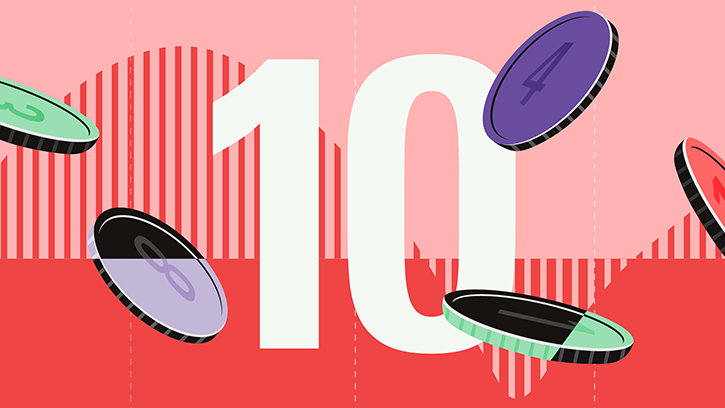Sunniva Kolostyak: The UK's biggest fund, Terry Smith's Fundsmith Equity, has been downgraded by Morningstar. With me to explain why is Daniel Haydon from the manager research team.
Daniel, thank you very much for being here. So the fund's rating has changed from Gold to Silver. Can you explain the rationale behind the the downgrade?
Daniel Haydon: Morning, Sunny. Yes, so, I like to usually maintain a bear case for the funds I cover. Here, unfortunately, some of my bear cases have begun to come to light, but not all, and we do maintain some conviction. In particular, I'd like to draw attention to Terry Smith's sell discipline, which in recent years, and particularly over the last 18 months, has really come to the fore. We tend to see this kind of thing happen for buy and hold managers when they see some outflows. But here, what I see as a slight lack in rigor is really something which I've taken a look at. So PayPal (PYPL), Terry Smith says he sold that too late, and there are a number of management missteps there. Estee Lauder (EL), which had some difficulties in China, was similarly painful for the fund. These were sold too late.
On the other hand, there are also a couple of positions that were sold too early, or at least according to Terry. These were fundamentally justified, but then the price took off afterwards in part due to the massive tailwinds from AI. So that was Amazon (AMZN) and then also Adobe (ADBE).
Key Morningstar Metrics for Fundsmith Equity
• Morningstar Medalist Rating: Silver
• Morningstar Category: Global Large-Cap Growth Equity
• Trailing Returns (GBP): 8.91% YTD, 11.32% 5 Years Annualised
SK: So what is Terry Smith's sell dicipline like?
DH: So, over time, Terry has been extremely long-term and that's been one of his edges. In fact, he is a talented investor, and he has managed to see through short-term price volatility and also some cyclical operational effects. So here then he tends to sell when a stock looks too expensive compared to his rather restricted universe of stocks, but also when he begins to think that management are taking the company in a strategic direction that he doesn't like, and finally, if he just admits he made a mistake.
SK: Another thing is the process pillar, which has been changed from High to Above Average. For the uninitiated, what does that mean? How does that fit into your ratings framework?
DH: So, at Morningstar, we have a forward-looking rating framework. We tend to look at both the process and then also the people pillars. So here, we look at the consistency of implementation and then the investment philosophy. We still really like this investment philosophy here, but as mentioned, there are some questions in terms of the sell discipline. As I mentioned to colleagues, Julian Robins, Terry Smith's second in command, he has an unofficial rule, which I'll paraphrase, which is essentially just to sell when management begin to disappoint. There are indications that perhaps Terry has become more trigger happy and emotional in these regards, and this has disappointed slightly. Elsewhere, what's quite interesting here is that the top two positions are now close to 10% of the fund each. This is the departure from what we've seen in the fund's earlier years, and it's also in stark contrast to the smaller Fundsmith Sustainable Equity fund, which is managed more in accordance to the earlier years of the very large Fundsmith Equity fund.
SK: So the last thing we need to talk about then is how this has impacted performance. What's the performance been like recently for the fund?
DH: So, the fund actually compares quite well against the broad growth category that we look at Morningstar. Many of those funds had more exposure to some of the growthier names that sold off a few years ago. What's also interesting is Facebook, or Meta (META), performed really strongly for the fund having disappointed the prior year. So that's been reassuring. However, the fund's free cash flow yield is now below that of many comparative indices. What we've noticed is that when that measure of value is more attractive compared to the index, really strong performance tends to follow. I mean, I'm no oracle in this regard. No one can truly predict the future. And there are many reasons to be hopeful still. And hence we've maintained the Silver rating here.
Indeed, the performance over the long term remains stellar and long-term investors have been handsomely rewarded. However, there is a bit more uncertainty now and that's reflected in the new rating.
Kolostyak: Daniel, thank you very much for being here today. For Morningstar, I'm Sunniva Kolostyak




























